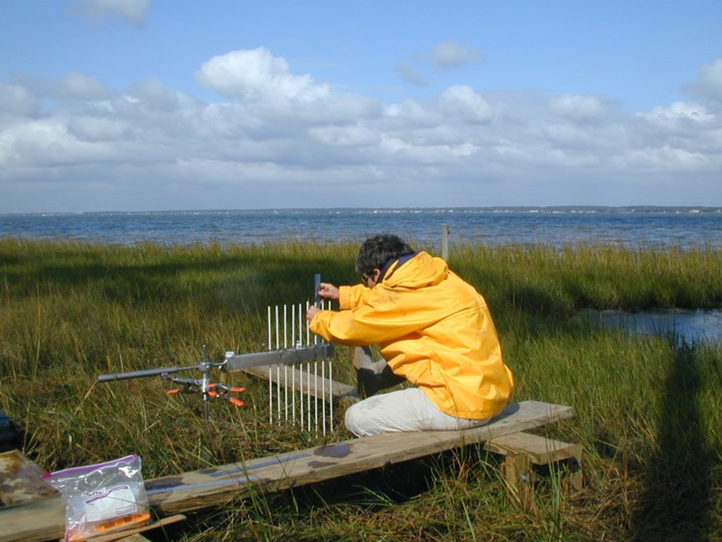
A new report from the North Carolina Surface Elevation Table Community of Practice (NC SET COP) shows that most of North Carolina’s coastal wetlands are not keeping pace with sea level rise.
NC SET COP is a voluntary partnership among multiple organizations, including NCCOS, that have either installed Surface Elevation Tables (SETs) in North Carolina coastal wetlands, or rely on SET data to manage these wetlands. The partnership was formed in 2018 to facilitate collaboration among SET users and support efforts to understand how North Carolina’s coastal wetlands respond to sea level rise.
SETs measure changes in the elevation of a wetland surface relative to a stable benchmark. To measure elevation change, a horizontal arm with nine pins is inserted into the top of the SET benchmark. The heights of the pins above the arm are measured and compared to the first readings when the benchmark was installed. With repeated measurements over time, SETs can provide a high-precision record of elevation change directly comparable to local changes in sea level.
NC SET COP’s analysis of 132 SETs installed across North Carolina found that 33 recorded net losses in elevation over the entire record of measurement. Among the 99 SETs that recorded positive elevation change, 79 did not build elevation fast enough to keep pace with the average rate of sea level rise over the past 30 years. Coastal managers can use the findings to identify which wetlands are most at risk and in need of restoration and conservation.
Coastal wetlands protect communities by buffering the energy of storms, improving water quality in bays and estuaries, supplying nutrients to marine food webs, providing critical habitat for birds and wildlife, and acting as nurseries for many commercially important species of fish and shellfish.
